This ComfyUI Upscale workflow utilizes the SUPIR (Scaling-UP Image Restoration), a state-of-the-art open-source model designed for advanced image and video enhancement. In this workflow, you will experience how SUPIR restores and upscales images to achieve photo-realistic results.
SUPIR, the forefront of image upscaling technology, is comparable to commercial software like Magnific and Topaz AI. Our tutorial encompasses the SUPIR upscaler wrapper node within the ComfyUI workflow, which is adept at upscaling and restoring realistic images and videos.
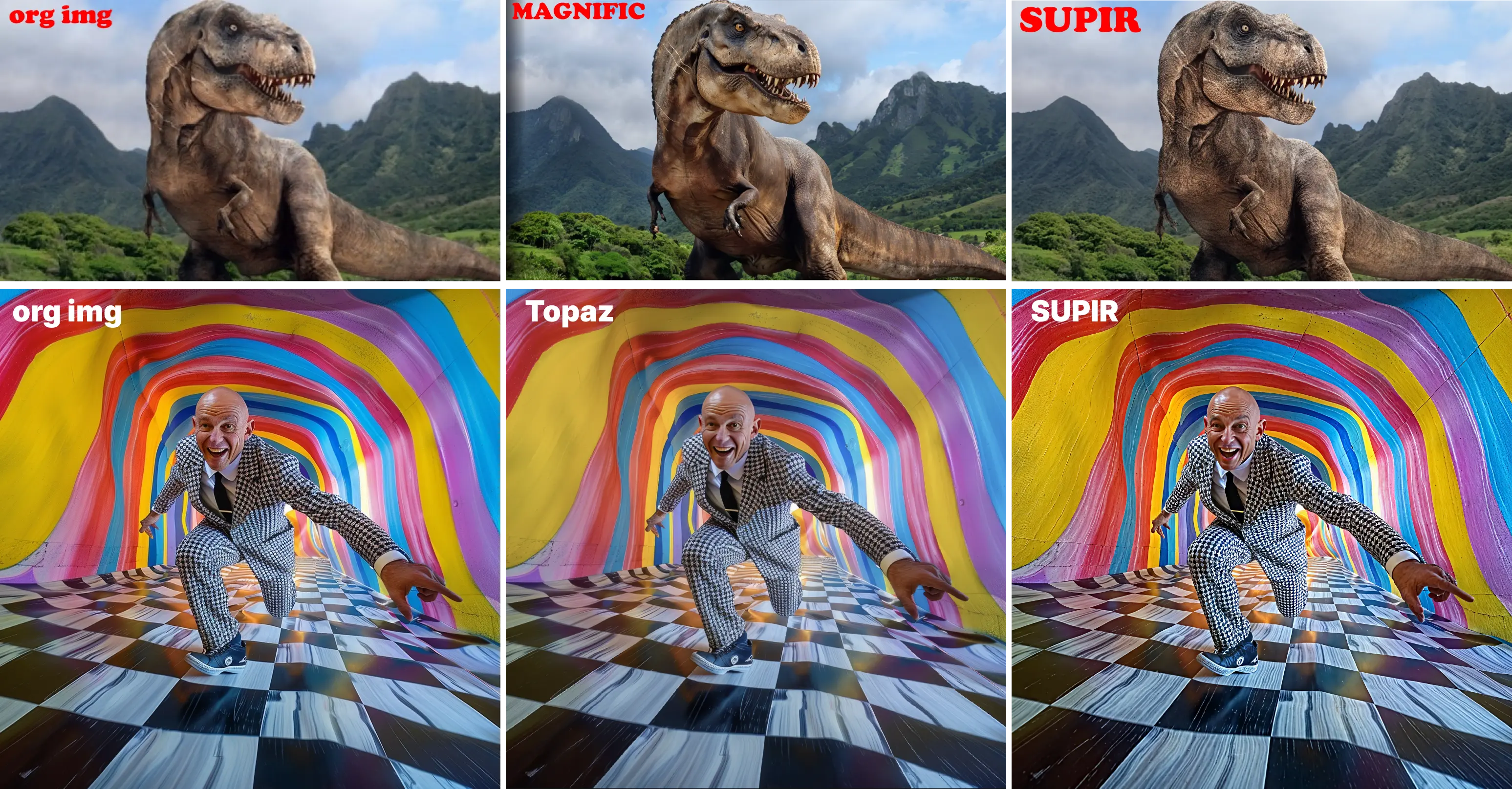
For image upscaling, this workflow's default setup will suffice. To modify it for video upscaling, switch from “load image” to “load video” and alter the output from “save image” to “combine video” to cater to video files.
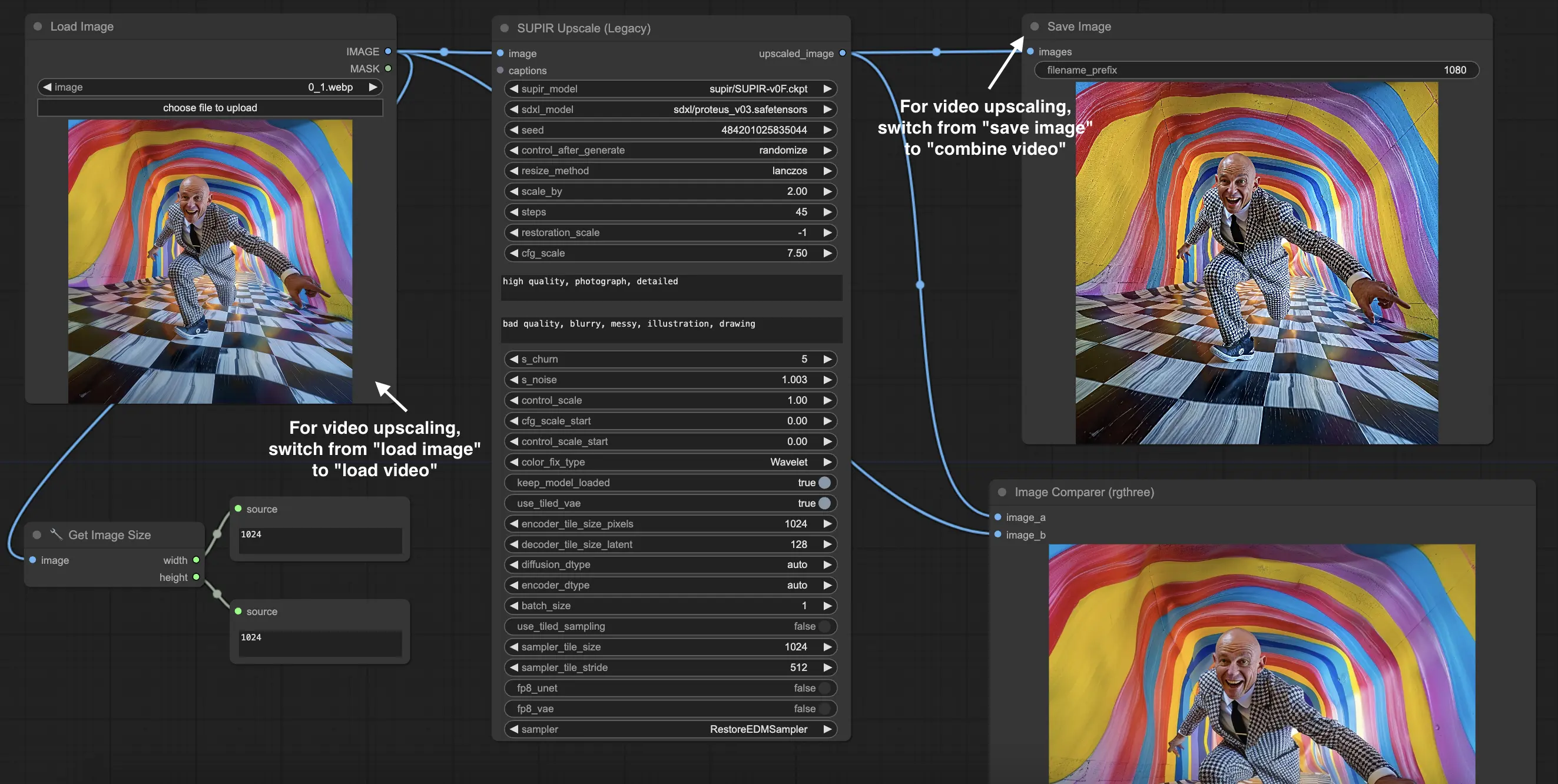
The Scaling-UP Image Restoration technology is a groundbreaking enhancement and upscaling model introduced by the paper Scaling Up to Excellence: Practicing Model Scaling for Photo-Realistic Image Restoration In the Wild. SUPIR innovates with a photo-realistic image restoration method using a generative prior coupled with model scaling, enriched by multimodal techniques allowing image restoration guided by textual prompts, which broadens its application spectrum significantly.
Before diving into SUPIR’s usage, ensure the checkpoint models are accessible:
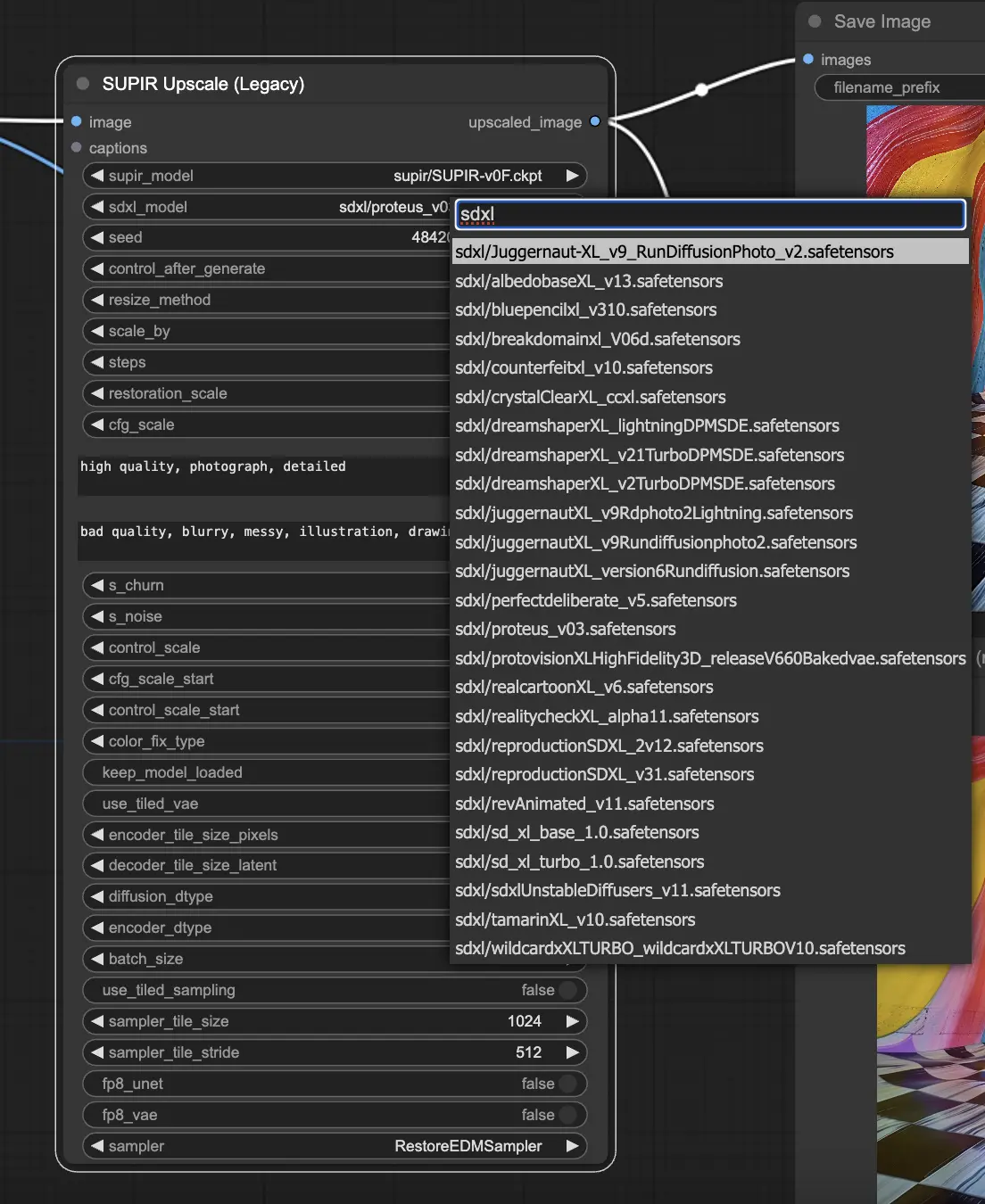
Two key versions of SUPIR are available:
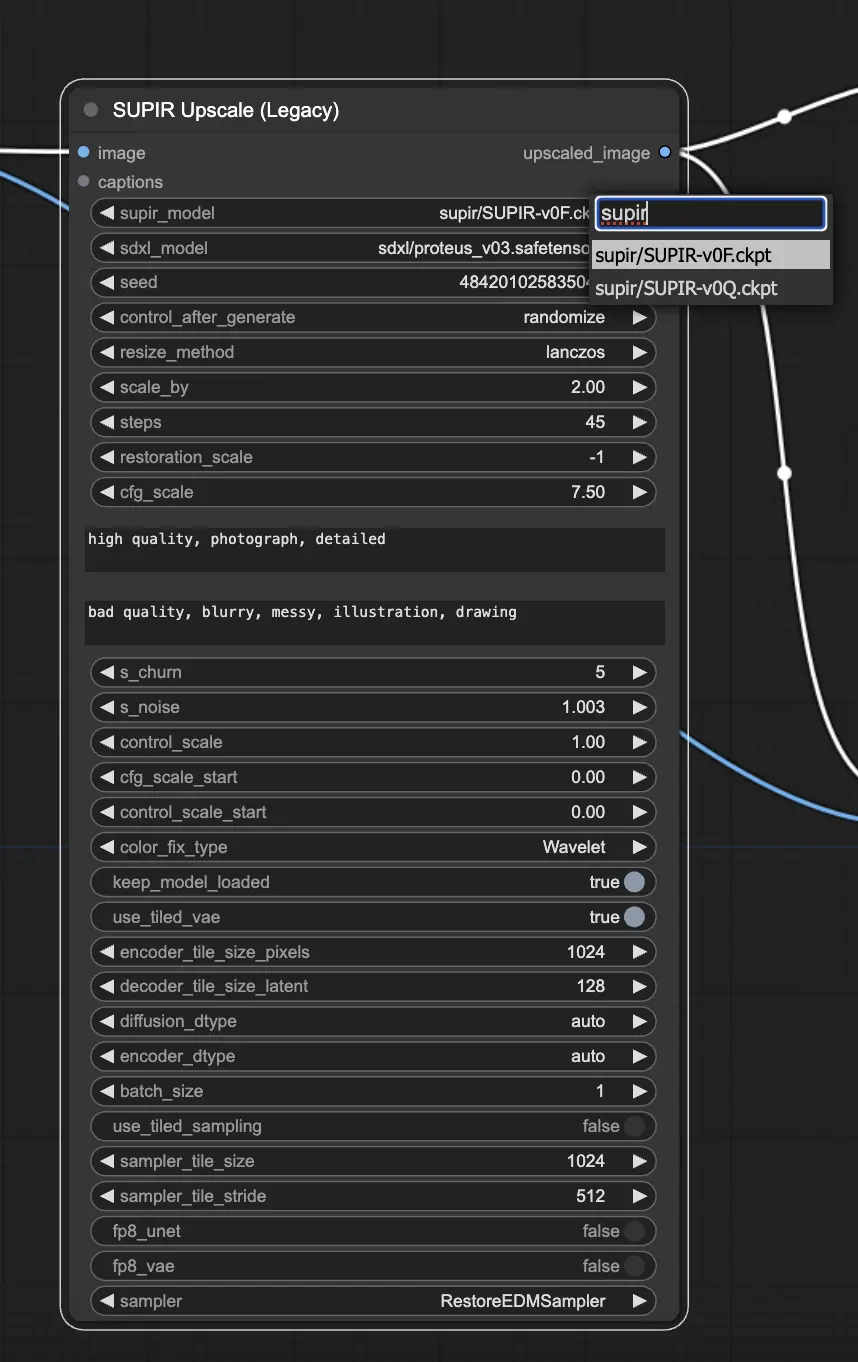
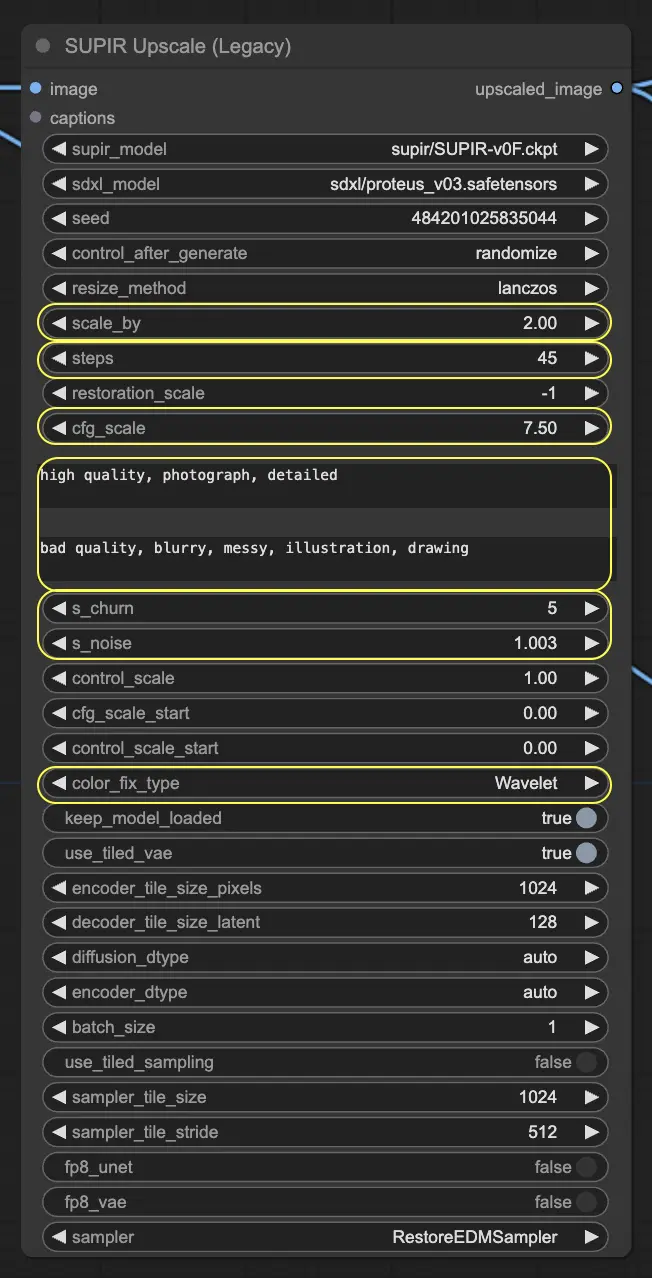
scale_by: The upscaling ratio for given inputs determines how much the image size is increased during restoration.steps: This parameter specifies the number of steps for the EDM Sampling Scheduler, likely influencing the detail and quality of the restoration process.cfg_scale: This is the classifier-free guidance scale for prompts, affecting how strongly the output adheres to the provided textual prompts.positive-prompt & negative_prompt: These parameters allow users to guide the restoration towards desired qualities (positive prompt) and away from undesired characteristics (negative prompt).s_churn & s_noise: Representing original hyperparameters of EDM, this controls aspects of the noise model within the diffusion process, impacting the final image texture and clarity.color_fix_type: This parameter allows for the selection of color correction methods post-restoration, with options including 'None', 'AdaIn', and 'Wavelet'.Image restoration technology has grown tremendously, now delivering results that are visually stunning and smarter. This growth is largely due to the introduction of the SUPIR Upscaler, which utilizes advanced generative models to enhance images.
For a deeper dive into the SUPIR Upscaler’s capabilities and more technical details, explore resources on its GitHub page or the foundational research paper. These resources provide comprehensive insights into the technologies and strategies that establish the SUPIR Upscaler as a leader in image restoration.
RunComfy is the premier ComfyUI platform, offering ComfyUI online environment and services, along with ComfyUI workflows featuring stunning visuals. RunComfy also provides AI Playground, enabling artists to harness the latest AI tools to create incredible art.